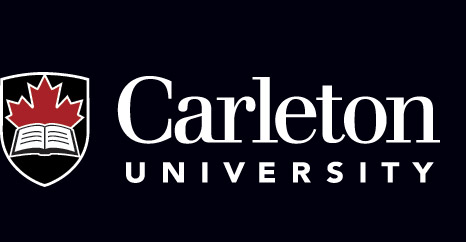For details about the project and how to apply, click
here.
The studentship includes a full stipend, paid for three years at RCUK rates (for 2017/18, this is £14,553 pa) and fees.
The deadline for applications is 28th January 2018, and the funding would begin on 1st October 2018.
If you know of anyone who would be interested in applying, please share the link:
Project Description
Horror films have been subject to examination from a variety of angles in recent years, but much of the scholarship on contemporary American horror is based in one of three commonplace approaches: a) reflectionist national readings (such as post-9/11 readings of American horror); b) psychoanalytic models (drawing from Carol Clover and Barbara Creed’s work in particular); c) Deleuzian affect-based readings. Although each is useful in its own right, these well-established approaches are limited in their potential to yield new insights. In order to push the field forward, more needs to be done to understand contemporary horror texts using innovative conceptual approaches and theoretical tools.
The aim of this project is to investigate contemporary American horror film by drawing on the kinds of conceptual approaches and theoretical tools that have not traditionally been applied to horror film. These can be drawn from other disciplines (such as philosophy, gender studies, politics, psychology, the sciences), and can encompass discussion of studio horror or independent productions originating from America, so long as it has been created within the last decade (approximately).
The nature of this project is that it is open to a wide variety of approaches. Possible topics could include, but are certainly not limited to, the following:
- Gender in contemporary American horror (moving beyond psychoanalytically infused models such as ‘the gaze’, ‘the final girl’, and so forth)
- Moral or ethical problems within contemporary American horror
- Narrative construction and playful representations of time within contemporary American horror
- Conceptions of social or legal justice within contemporary American horror
- Cycles within contemporary American horror (such as ‘the found footage film’)
- Psychology and contemporary American horror: depictions of selfhood, personality disorders, fractured identities (and so forth)
- Autonomy and entrapment within contemporary American horror
- Victimhood within contemporary American horror
- Contemporary American horror and sex
This PhD studentship is based within the Department of Social Sciences and builds upon the extensive research into horror cinema already undertaken at Northumbria University.
Eligibility and How to Apply
Please note eligibility requirement:
• Academic excellence of the proposed student i.e. 2:1 (or equivalent GPA from non-UK universities [preference for 1st class honours]); or a Masters (preference for Merit or above); or APEL evidence of substantial practitioner achievement.
• Appropriate IELTS score, if required.
• Applicants cannot apply for this funding if currently engaged in Doctoral study at Northumbria or elsewhere.
For further details of how to apply, entry requirements and the application form, see
Please note: Applications that do not include a research proposal of approximately 1,000 words (not a copy of the advert), or that do not include the advert reference (e.g. RDF18/…) will not be considered.
Deadline for applications: 28 January 2018
Start Date: 1 October 2018
Northumbria University takes pride in, and values, the quality and diversity of our staff. We welcome applications from all members of the community. The University holds an Athena SWAN Bronze award in recognition of our commitment to improving employment practices for the advancement of gender equality and is a member of the Euraxess network, which delivers information and support to professional researchers
Funding Notes
The studentship includes a full stipend, paid for three years at RCUK rates (for 2017/18, this is £14,553 pa) and fees
Recent publications by supervisors relevant to this project:
- Jones, S. (2017) “Cartesianism and Intersubjectivity in Paranormal Activity and the Philosophy of Mind”, Film-Philosophy, 21:1.
- Jones, S. (2016) “A View to a Kill: Perspectives on Faux-Snuff and Self”, in Jackson, N., Kimber, S., Walker, J. and Watson, T. (eds.) Snuff: Real Death and Screen Media. New York: Bloomsbury.
- Jones, S. (2016) “Torture Pornopticon: (In)security Cameras, Self-Governance and Autonomy”, in Aldana Reyes, X. and Blake, L. (eds.) Digital Horror: Haunted Technologies, Network Panic and the Found Footage Phenomenon. London: IB Tauris.
- Jones, S. (2015) “Torture Born: Representing Pregnancy and Abortion in Contemporary Survival-Horror”, Sexuality & Culture, 19:3.
- Jones, S. (2014) “Pretty, Dead: Sociosexuality, Rationality and the Transition into Zom-Being”, in Jones, S. and McGlotten, S. (eds.) Zombies and Sexuality: Essays on Desire and the Living Dead. Jefferson: McFarland.
- Jones, S. (2013) Torture Porn: Popular Horror after Saw. Basingstoke: Palgrave-Macmillan
 I have just been awarded the honorary position of Adjunct Research
Professor in Law and Legal Studies at Carleton University (Ottawa).
I have just been awarded the honorary position of Adjunct Research
Professor in Law and Legal Studies at Carleton University (Ottawa). 














